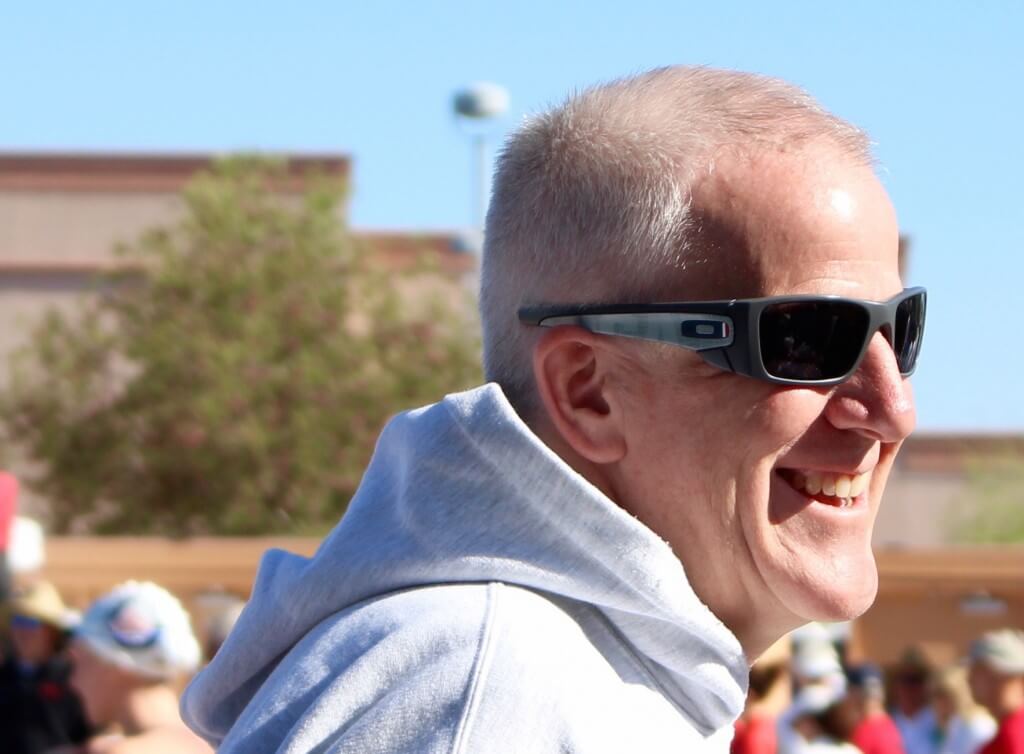Coaching Philosophy: Why You Do What You Do

By Wayne Goldsmith
Coaching Philosophy is at the very heart of everything a coach thinks, says and does.
It’s their core coaching framework – the set of values, behaviours and standards that a coach believes in: it’s why they do what they do.
But – surprisingly few coaches can simply, easily and immediately explain their coaching philosophy.
They can tell you about their workouts.
They can explain their reasoning for including different drills and skills practices in their workouts.
They can recite the personal best times and achievements of every swimmer in their program but quite often coaches haven’t spent the time to really understand why it is they do what they do.
Coaching Philosophy: The Five Whys.
When working with inexperienced coaches, I will often start the conversation with this question: Why do you coach?
The answer to this direct question is often vague and uncertain, typically:
“I’m not really sure” or
“Because I love swimming” or
“Because I’ve always wanted to be a coach”
My response to the first answer is again, “So why do you want to coach?”
The second answer is often a little more meaningful and is usually a better indicator of the coach’s true motivation and coaching philosophy.
Sometimes it may take up to five “why” questions to reveal and discover a coach’s real reason (or reasons) for coaching.
(Incidentally – the Five “Whys” is also a great way to discover a swimmer’s true motivation for why they swim – more on this in a coming post).

Coaching Philosophy – Eddie Reese Photo Courtesy: Andy Ringgold/Aringo
What are some of the common coaching philosophies, i.e. why do coaches say they coach.
Here are just a few examples.
Coaching Philosophy: I want to make money.
We’ve all got to eat. And pay rent. And put fuel in our cars. There’s nothing wrong with making money from swimming coaching. However, if your coaching philosophy is centered on the financial aspects of coaching swimmers, this will determine many aspects of your program.
For example, some coaches make money by charging coaching fees to swimmers – therefore – the more swimmers in your lanes – the more money you make.
If the reason you’re in coaching is to make money from swimming fees, then by necessity this means trying to get as many swimmers as possible in each lane, keep your costs low and working hard – but the downside is, it is difficult to provide quality, individualized, personalized coaching with 20 swimmers training in each lane.
Coaches whose philosophy is focused on commercial success will build quality coaching systems, structures and programs and rely on the consistent application of those systems to produce results with their swim team.
It’s a bit like McDonald’s.
When you go into a McDonald’s you know you will not get freshly made lobster Mornay cooked to your liking or imported caviar on a silver platter but…you know that wherever you go in the world you get consistent, clean, freshly cooked burgers and fries because they have standardized system in place in every restaurant – in every city – in practically every nation on the plant.
Coaching for maximum profit doesn’t usually provide the opportunity for coaches to work intensively and individually with each swimmer in their program but their systems provide an environment where all swimmers can get consistent quality group training every time they come to the pool.
Coaching Philosophy: I love the sport and I want to give something back to the sport I love.
Every coach loves the sport. It’s normal and natural for coaches to want to give their time, energy and expertise to every swimmer they work with. The challenge for “I love the sport” coaches is to try and understand their athletes and what they want and expect from their swimming experience.
Not every athlete is motivated by a love of the sport.
For some, swimming means fitness.
For others the sport is about friendships, fun and family.
For a few, swimming is an opportunity to challenge themselves, to chase their dreams and to realise their potential.
A coach with a “love the sport” philosophy has a lot to give the athletes in their program but they need to understand and accept that not everyone is motivated by the same things.
The coach can “inspire” athletes to do amazing things and maybe over time the coach’s passion and enthusiasm will in turn fire the spark inside each swimmer in the program to similarly fall in love with the sport.

Coaching Philosophy – David Marsh Photo Courtesy: Maria Dobysheva
Coaching Philosophy: I want to help swimmers realise their peak potential at national and international level.
Many coaches will say they are all about performance and that they’re in it to win it!
In reality the commitment, dedication, drive, determination, hard work and reluctance to compromise required to be successful as a high performance coach is not for the faint hearted and very few coaches are motivated to live the high performance lifestyle required to be the best.
And believe it or not, there are very very few high performance coaches around the world who are rolling in the ‘green.
Because the time, the attention to detail and the precision required to fine tune the training and preparation of a world-class swimmer is so demanding, high performance coaches usually work with a handful of athletes – only a few athletes at most per lane – which is not the way to make money from coaching.
The potential rewards are high – the opportunity for success at the elite levels of the sport is exciting – but the demands on the coach are heavy and relentless.
But if was easy to be the best – everyone would be doing it.
Coaching Philosophy: The Multiple Philosophy Coach
Some coaches have very complex coaching philosophies. They love the sport, they are focused on achieving success at the elite end of the sport and they have a strong commercial focus as well.
It is possible to live by multiple coaching philosophies and still be highly successful.
It is also possible to establish, grow and develop a sustainably successful coaching program based on multiple coaching philosophies.
For example, some coaches have developed program models where:
- Large numbers of swimmers join their program in learn to swim, junior strokes school and mini squad training groups (“I want to make money”)
- The coach provides the opportunity for swimmers, triathletes, fitness swimmers and others to come and train with various motivation and commitment levels (“I love the sport”)
- The coach has a high performance team, made up of a small number of talented, committed athletes with a minimum attendance requirement (“I want to be the best”).
This multiple philosophy model can be effective as it is the large numbers of fee paying younger swimmers in the program who provide the coach with the financial security, flexibility, freedom and independence to coach the small team of high performance athletes when, where and how he / she chooses.
Summary:
- Having a coaching philosophy is an essential step in your evolution as a coach. Once you know why you coach – and you understand what it is you believe in – the rest is just filling in the details.
- Your coaching philosophy may change over time. There’ll be times when coaching is all about making money. There’ll be times when it’s about winning and there’ll be times when it’s just something you do because you can’t imagine your life not coaching. Make it a practice to challenge yourself at the end of each season about your coaching philosophy. Ideally, at the end of every season, discuss your coaching philosophy with another coach, a mentor coach – even one from another sport – and have them honestly and directly challenge you and your coaching beliefs – is your coaching philosophy (what you believe, what you say and what you think) reflected in what you do.
- Having a clear coaching philosophy gives you the freedom and confidence to focus on achieving your goals. It eliminates a lot of the uncertainty in your coaching and it solidifies your day-to-day routines, practices, systems and programs. It’s something worth knowing, understanding and valuing.
Whatever your coaching philosophy is – go with it – enjoy your coaching – strive to get better at it every day.
Wayne Goldsmith




